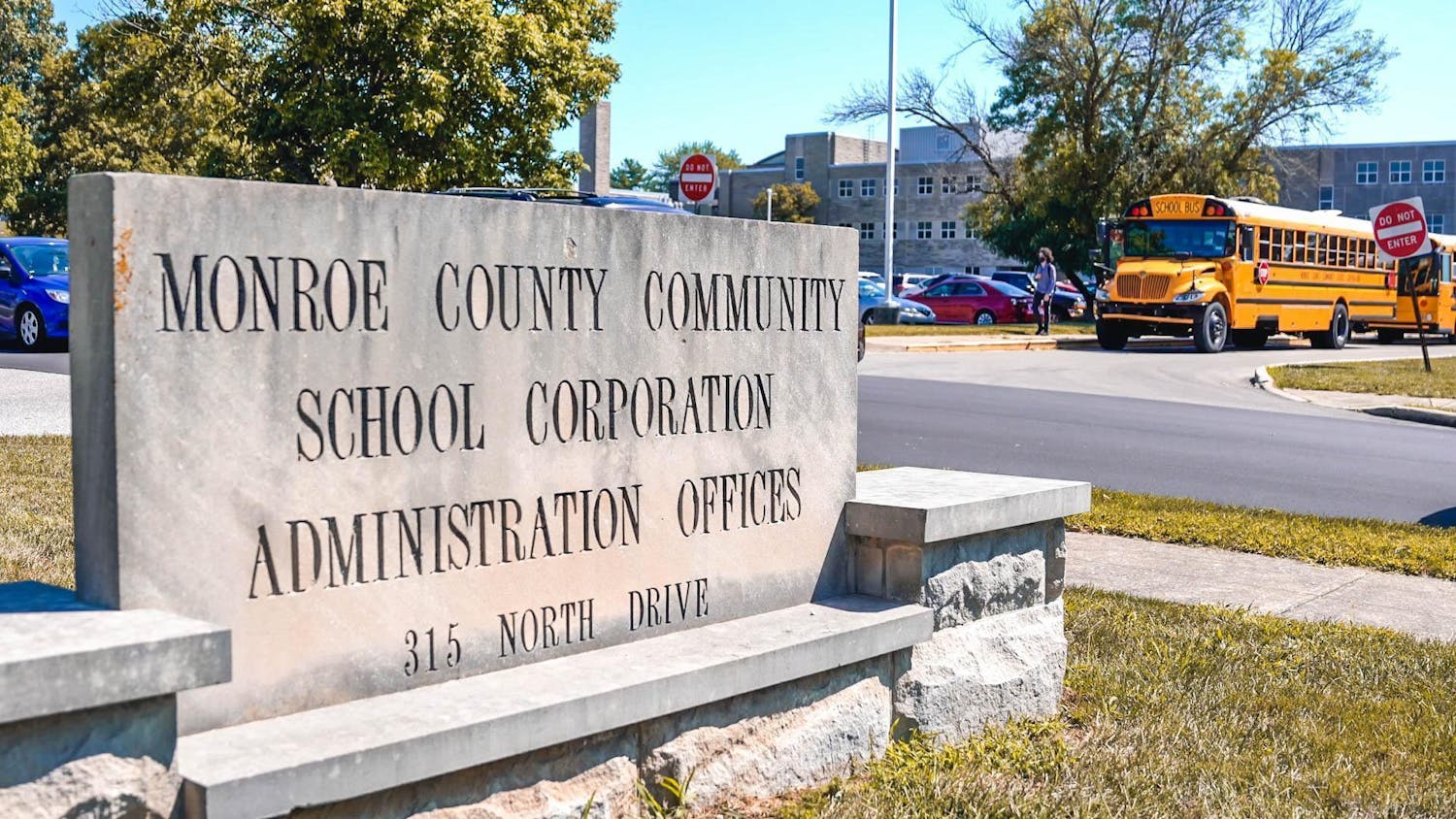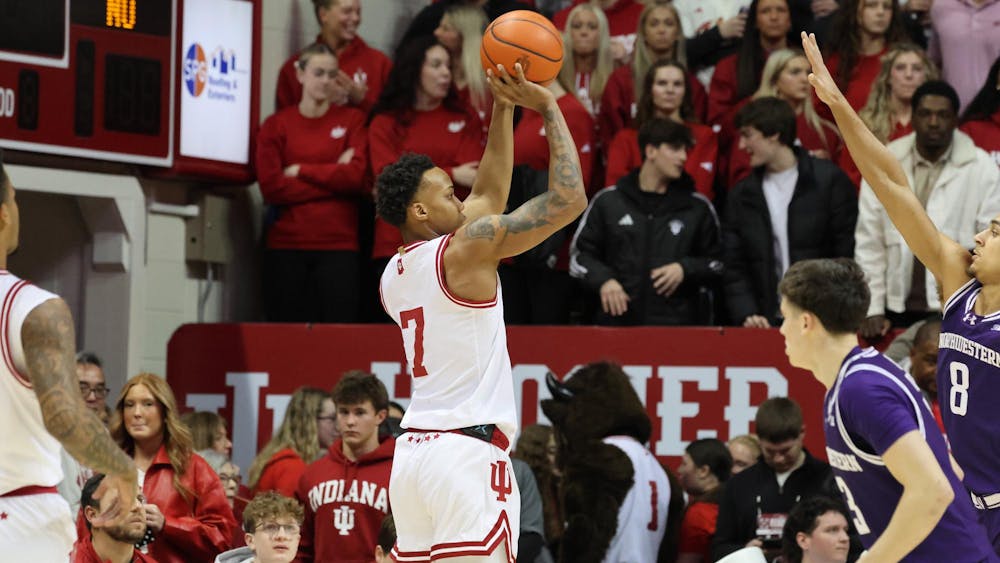Kelley may soon add a new distinction to its metaphorical trophy case: the preferred business school of current and former National Football League players.
The National Football League Players Association and the Kelley School of Business released a joint statement Sept. 3 announcing a partnership, “to provide customized graduate-level educational programs to current and former NFL players.”
Last year, the Kelley School of Business hired Tim Fort, a professor of business law and ethics who spearheaded the first executive MBA program for professional athletes at George Washington ?University.
He suggested to business school administrators that IU create a similar program designed for NFL players.
Using his contacts in the NFLPA, Fort sparked initial talks between the two parties in November 2013. The NFLPA then followed up with a visit to Bloomington in ?February.
The final step was the Kelley School of Business submitting a formal proposal to the NFLPA in April, which it ?accepted.
The programs will range from, “initial career development through professional and certificate programs and ultimately to a Masters of Business Administration degree,” according to the release.
Nolan Harrison III, the NFLPA’s senior director of former players, a 10-year NFL veteran and an alumnus of IU, said the NFLPA is trying to teach its players to start looking at what to do post-career.
It’s a common misconception that NFL players can ride off into the sunset once their playing days are over and live off the money from their ?football contracts.
“That’s one of those myths out there that every player retires, and they’re wealthy, and they can do whatever,” Harrison said. “That’s not the case. Ninety-nine percent of the guys have to work. They have to have a career once they’re done playing.”
Not every player is fortunate enough to have the longevity of Harrison, who played 10 seasons for the Oakland Raiders, Pittsburgh Steelers and Washington Redskins.
The length of the average NFL career is 3.2 years, according to a statement made by NFLPA Executive Director DeMaurice Smith in 2011.
Ash Soni, the executive associate dean for Academic Programs at the Kelley School of Business, said fans only hear about the players who make millions of dollars, but not everyone makes the big bucks.
After players who receive the league minimum salary pay their taxes and their agents, they aren’t left with very much money, Soni said.
Assuming the typical player begins his professional career immediately after college, he will be forced to enter the post-NFL phase of his life in his mid-to-late twenties.
Soni said many of the players who will enroll in the NFLPA-IU MBA Program are no different than the business school’s other MBA students.
Both groups are relatively young adults, looking to make a career change.
“A lot of NFL players and former players have a long life ahead of them. They still have to do something else,” he said. “These guys go ahead and play three or four years of football, and they’re about the same age as some of our incoming MBA students, and they still need a career.”
Harrison said roughly half of the players in the league have a college degree.
“That’s one of those trends that we’re very happy are on the rise,” he said.
The former defensive end said many players are within a semester of graduation, so the number of college graduates in the NFL could potentially climb to 70 or 80 percent of the league if the NFLPA, gets them on track to finish their degree.
“We’re trying to educate the guys to understand once you finish your undergrad, there are benefits that are proven out if you continue to take those steps further and further along that can help secure a good financial future for you once you’re done playing,” Harrison said.
Achieving financial stability is crucial for a league in which 78 percent of its former players face bankruptcy or financial stress within two years of retirement, according to a 2009 Sports Illustrated study.
The partnership between the NFLPA and the Kelley School of Business supports one of the Players Association’s larger missions: to help every player transition from playing football to retirement without any issues — economic, family or personal — as best he can.
“Programs like this ... help our guys find their way, find their identity and see the path to resources to help them be better,” Harrison said. “That’s what we want to do, and this is going to play a pivotal role in that.”
The first step for players is to complete an introductory career development program.
Then they can participate in three to seven-day programs on topics such as personal finance, entrepreneurship, managing a small business, wealth management or making investments.
“If nothing else, some of these courses will help them manage their money that they’ve accumulated,” Soni said.
After completing a noncredit professional program, players can enroll in a four-course certificate program, and players can transfer their credits to a 30-credit master of science degree or a 45-credit MBA.
Players in the program will be on campus for seven to 10-day spans two or three times throughout the duration of the program.
“You can’t spend too much time away because then it becomes a barrier to being able to participate,” Harrison said. “But that is a requirement, to be able to spend some time there on campus.
“You want to be able to be there to actually feel and see what is going on and have that experience.”
It was critical for the program to be mobile since most of the players have families at home, and it’s necessary for the programs to be flexible with their schedules.
Soni said a successful MBA program from the perspective of the Kelley School of Business will simply be determined by how many players enter the program, how many earn their MBA and then how they use their degrees in the real world.
He expects them all to earn their master’s degree.
“Some of these guys are very determined, very committed, highly motivated, and they’re sharp,” Soni said. “You have to be sharp to be able to play that game.”
For some former players, success may be in the form of finishing their undergraduate degrees. For others, it could be earning an MBA.
Or success could be defined as a better home life or more security or simply to work a 9-to-5 job as a ?technician.
“Success really means up to the individual (that) they have as few negative circumstances and negative conditions that are on them when they leave the game,” he said.





